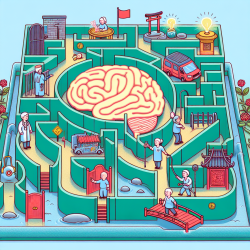Understanding the Barriers
The study highlights six key dimensions of healthcare access that contribute to the underdiagnosis and inadequate care of dementia in China:- Accessibility: Limited access to healthcare centers and specialists, especially in rural areas.
- Availability: Shortage of trained healthcare workers and memory clinics.
- Affordability: High costs of dementia care, often borne by families.
- Adequacy: Inadequate dementia care services in both community and long-term care settings.
- Acceptability: Cultural stigma and lack of acceptance of dementia as a medical condition.
- Awareness: Low public awareness and understanding of dementia.
Implementing Non-Pharmacological Interventions
The case report emphasizes the effectiveness of non-pharmacological interventions in managing dementia symptoms. These interventions include:- Music and art therapy
- Aromatherapy
- Doll therapy
- Light therapy
- Talking and cognitive therapies
Strategies for Practitioners
To overcome the barriers and improve dementia care, practitioners can:- Advocate for early screening and diagnosis using tools like the Mini-Mental State Examination.
- Promote training for healthcare providers in dementia care and non-pharmacological interventions.
- Collaborate with multidisciplinary teams to provide comprehensive care plans.
- Engage in community education to raise awareness and reduce stigma associated with dementia.
Encouraging Further Research
Further research is needed to develop innovative solutions for dementia care, particularly in low-resource settings. Practitioners are encouraged to participate in studies and contribute to the growing body of knowledge on dementia care.To read the original research paper, please follow this link: Barriers to dementia diagnosis and care in China.










